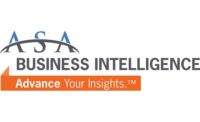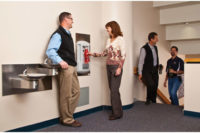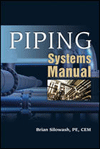Very few code changes were proposed to the Fuel Gas Code. The most exciting part of the Fuel Gas Code hearing was what was not accepted, as opposed to what was accepted. There were many proposed changes – some good, some terrible – that were recommended for denial by the Committee. In the grand scheme of things, the Fuel Gas Committee accepted very few major changes to the code.
The two changes that might have an impact on the engineering community are the changes to the hydrogen fuel piping section. One change adds requirements for hydrogen generating stations. One such method of generating hydrogen for fuel purposes is the electrolysis of water. The change requires such systems to conform to ISO 22734-1 or 22734-2. The other change to hydrogen fuel requirements is in regard to the piping. The change will add reference to ASME B31.12, which is the newer standard on hydrogen piping and pipelines.
Some of the changes that did not receive favorable consideration were the prohibition of installing water heaters or other appliances below a stair, the protection of tubing throughout the entire area of a wall cavity and the protection of insulation installed outdoors.
One of the perennial changes was a prohibition of unvented fuel-fired appliances in residential buildings. This change seems to come up every cycle. Once again, the Committee recommended denial for the very obvious reason that these appliances are listed for unvented use. Fortunately, this year the change did not take the typical two hours of discussion. The change was discussed and voted on very quickly.
Getting mechanical
The Mechanical Code had a number of changes proposed by the Code Action Committee. Similar to plumbing, many CAC changes were recommended for approval. Many more probably could have been recommended for approval, however, the changes needed some tweaking. The CAC will bring these changes back to be discussed at the final hearing.
A major change on ground source heat pumps was recommended for approval with modifications. The change was very good, however, it addressed only the use of plastic pipe in the ground source loop. While everyone recognizes this is the most prevalent material, other materials can be used. This was the change that was made by the modification. The new requirements add installation and design provisions for ground source heat pump piping systems.
The proposed changes to plenums once again took more than two hours of discussion. The finest change on plenums was submitted by the CAC. It was not approved, even though it should have been. This is one of the changes that the Committee asked the CAC to tweak. The Committee attempted to clarify the plenum requirements. Currently, there is no consistency regarding the acceptable materials permitted in a plenum. A good example is the water piping material. A certain plastic piping material can be exposed in the plenum if it is used as sprinkler pipe. If the same material is used for water distribution piping, it is not permitted to be installed in a plenum. These are the types of clarification that the Committee approved.
While the Committee did a valiant job on the plenum changes, a modified CAC change at the final hearing could be the best change to the overall plenum section.
A number of the code changes were self-serving. These types of code changes propose the use of a given manufacturer’s product. The Mechanical Committee was not fooled by any of these changes. Every change was recommended for denial.
Ventilation and exhaust requirements took up the majority of the time for the Mechanical hearing. Changes were proposed to ventilation rates for various buildings. There was also a change adding requirements for the control of an exhaust system in public garages. One change to prohibit residential buildings from using natural ventilation was soundly defeated.
A change to the dryer exhaust section will add dryer exhaust duct power ventilators as a method of exhausting residential dryers. These devices were previously known as booster fans. However, the new requirements in UL 705 modified the name to distinguish between older products that are not considered safe and newer ventilators that are tested for every potential fire scenario.
Pipe and fittings chatter
In the hydronic piping section, material and joint requirements were modified. Raised temperature polyethylene fittings were added to the approved material section for hydronic piping systems. Press connect and push connect fittings were specifically identified as being acceptable for joining copper and steel piping systems. Push connect fittings are also permitted for plastic piping systems.
Press connect fittings were added to the fuel oil piping section too. Press fittings for fuel oil piping use a different O-ring than water press fittings. This was clarified in the proposed change.
In the boiler section, many changes were made adding references to the ASME Boiler and Pressure Vessel Code. The Mechanical Code will place greater reliance on complying with the Boiler and Pressure Vessel Code. The biggest impact will probably be to pressure vessels since virtually every boiler meets the Boiler and Pressure Vessel Code requirements. The piping arrangements for a boiler and/or pressure vessel will have to meet these new requirements.
Some of the changes that proposed to add language from the Green Code to the Mechanical Code were recommended for approval. The changes would have resulted in the savings of water and energy, but the Committee was of the opinion that they belong in the Green Code. Many, including myself, think the changes belonged in the Mechanical Code. After all, the codes have always included water and energy savings requirements.
The deadline for public comments to the Fuel Gas and Mechanical Code changes is Aug. 1. The changes that receive public comment will be discussed at the final hearing in October in Portland, Ore. You can download the code changes and hearing results at www.iccsafe.org.






